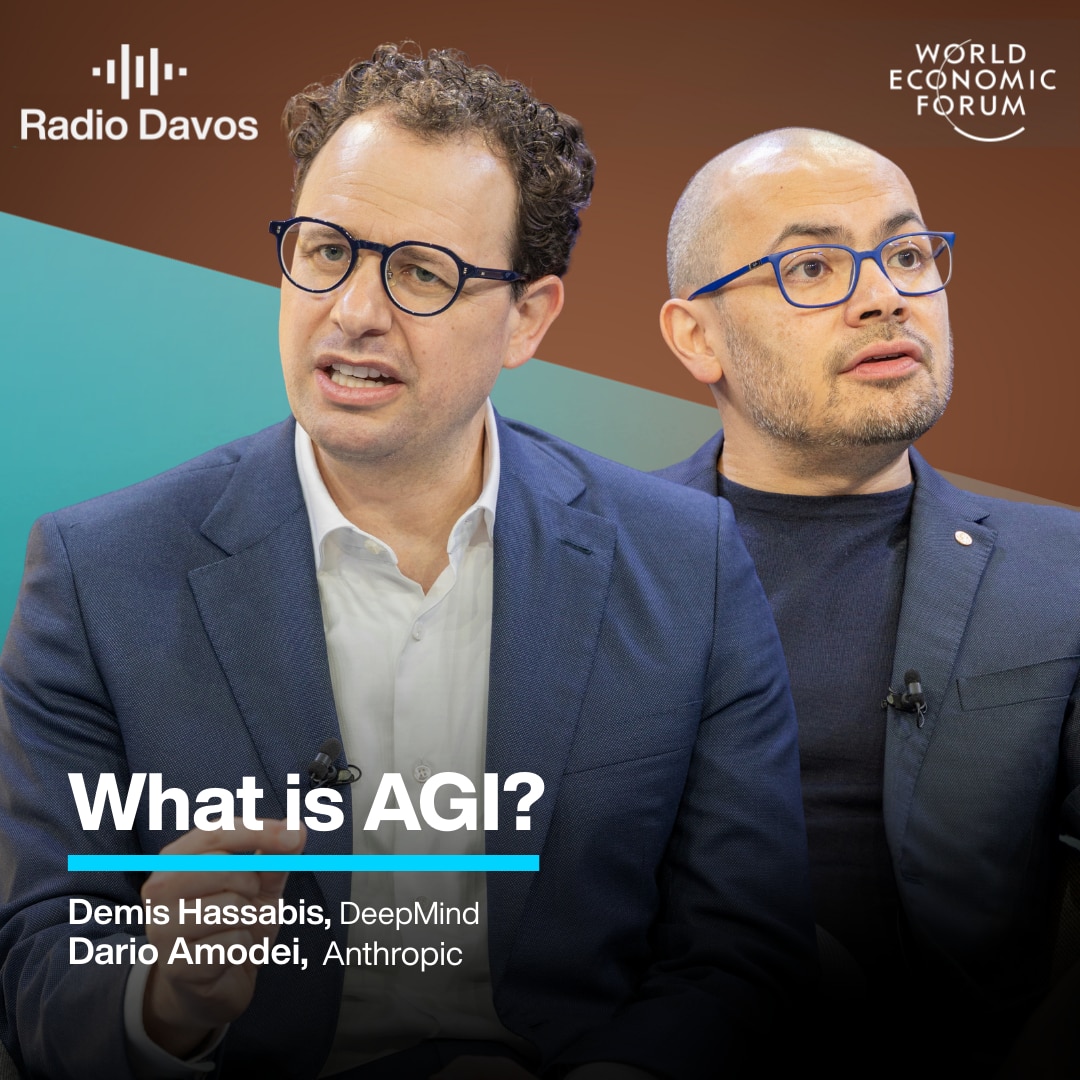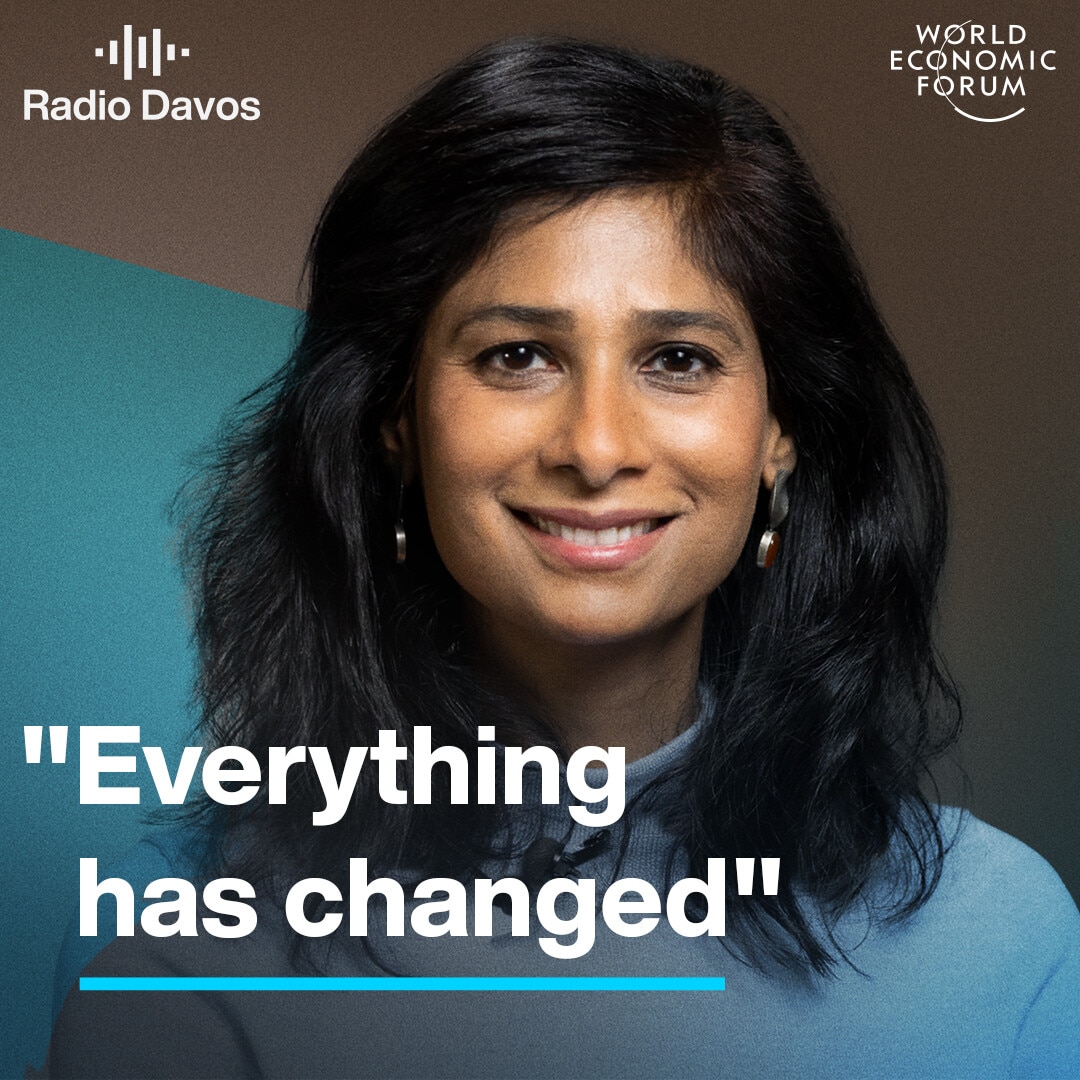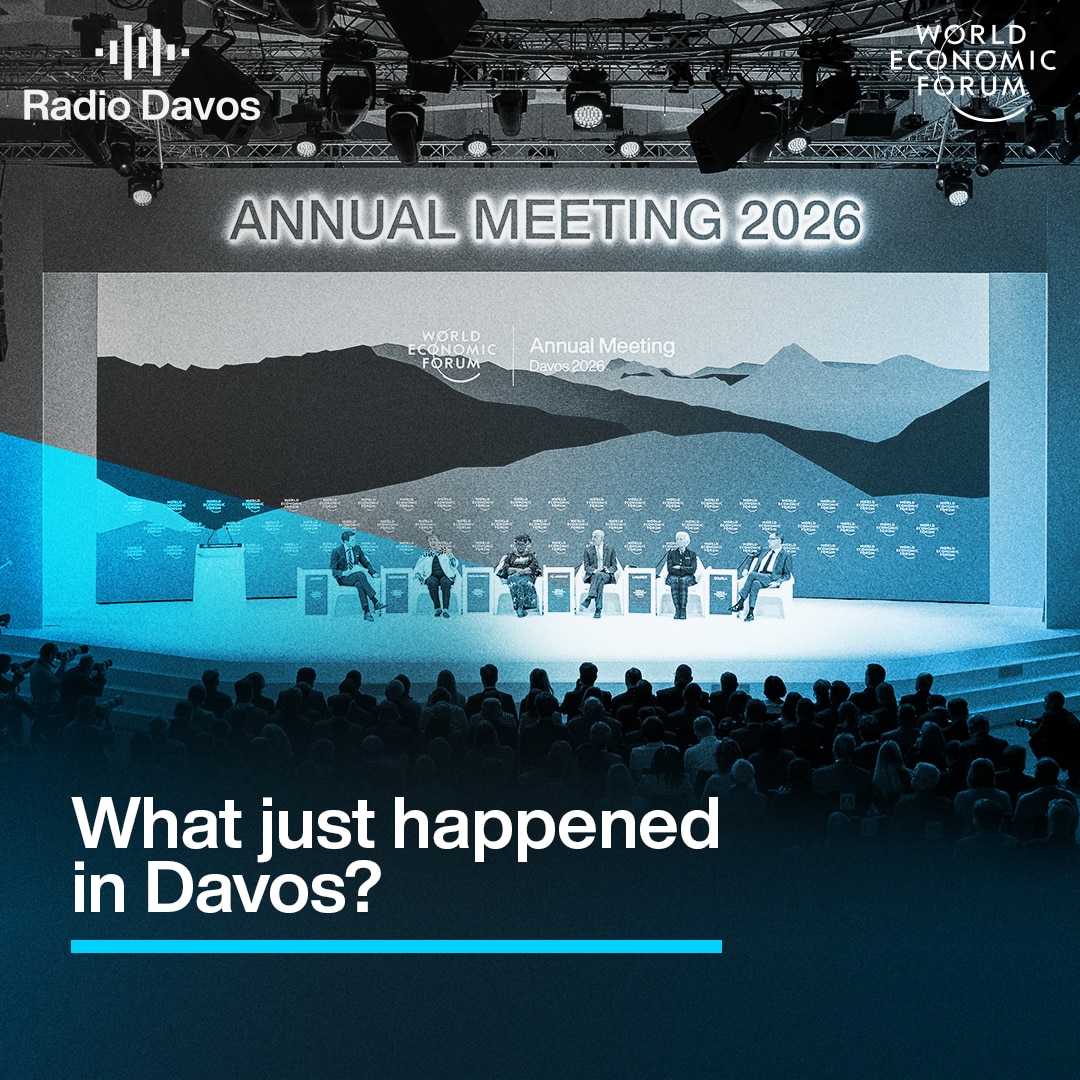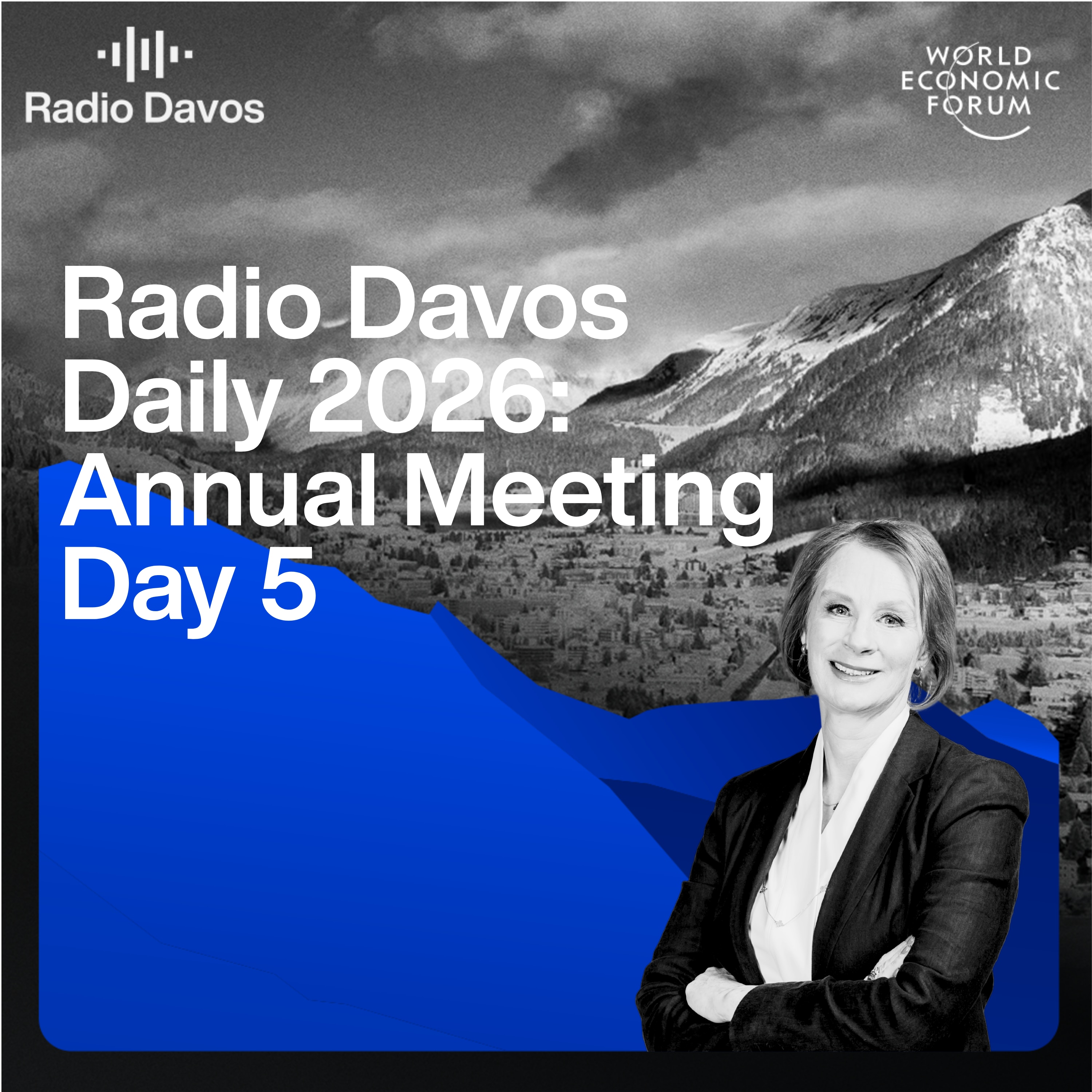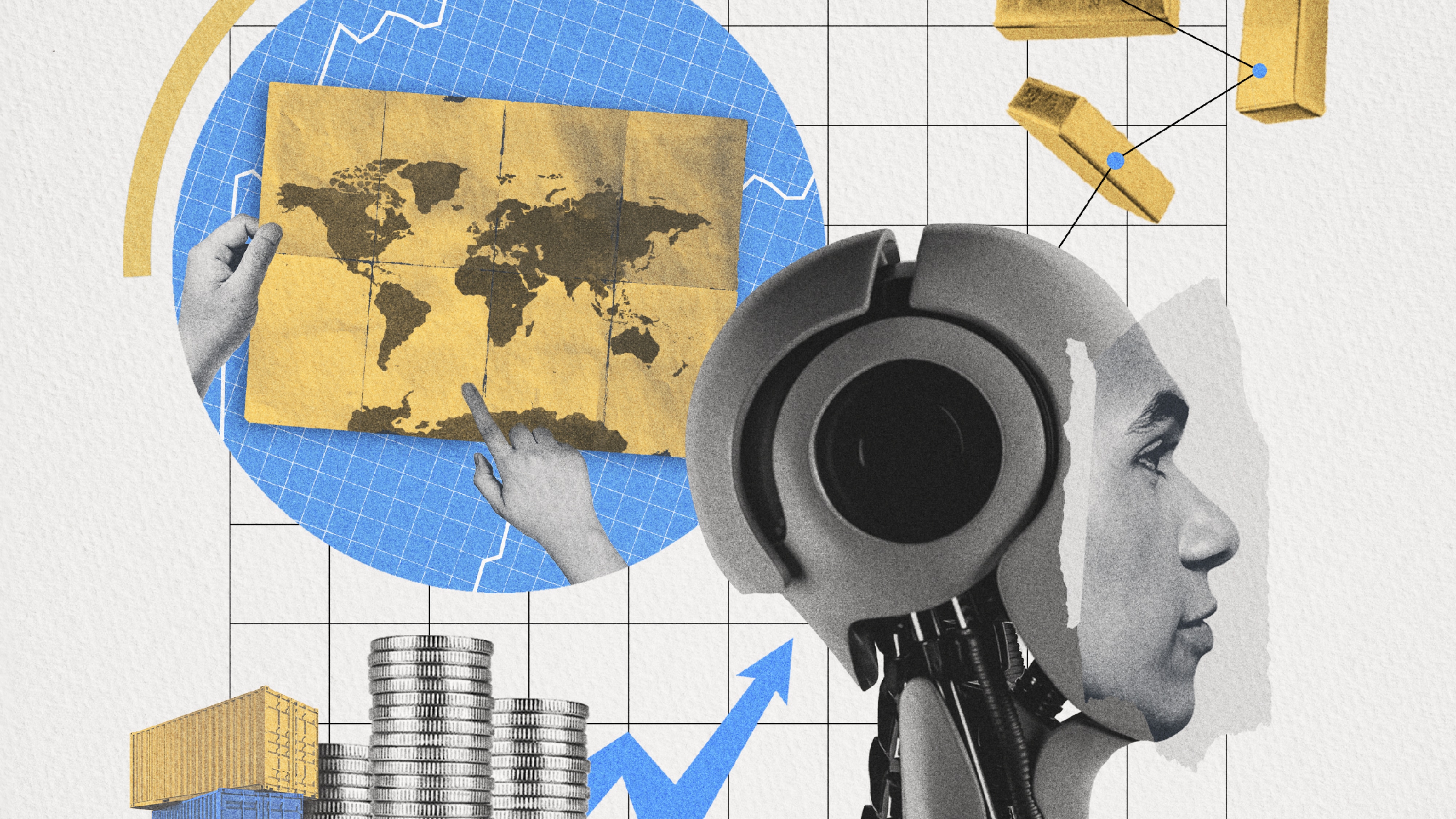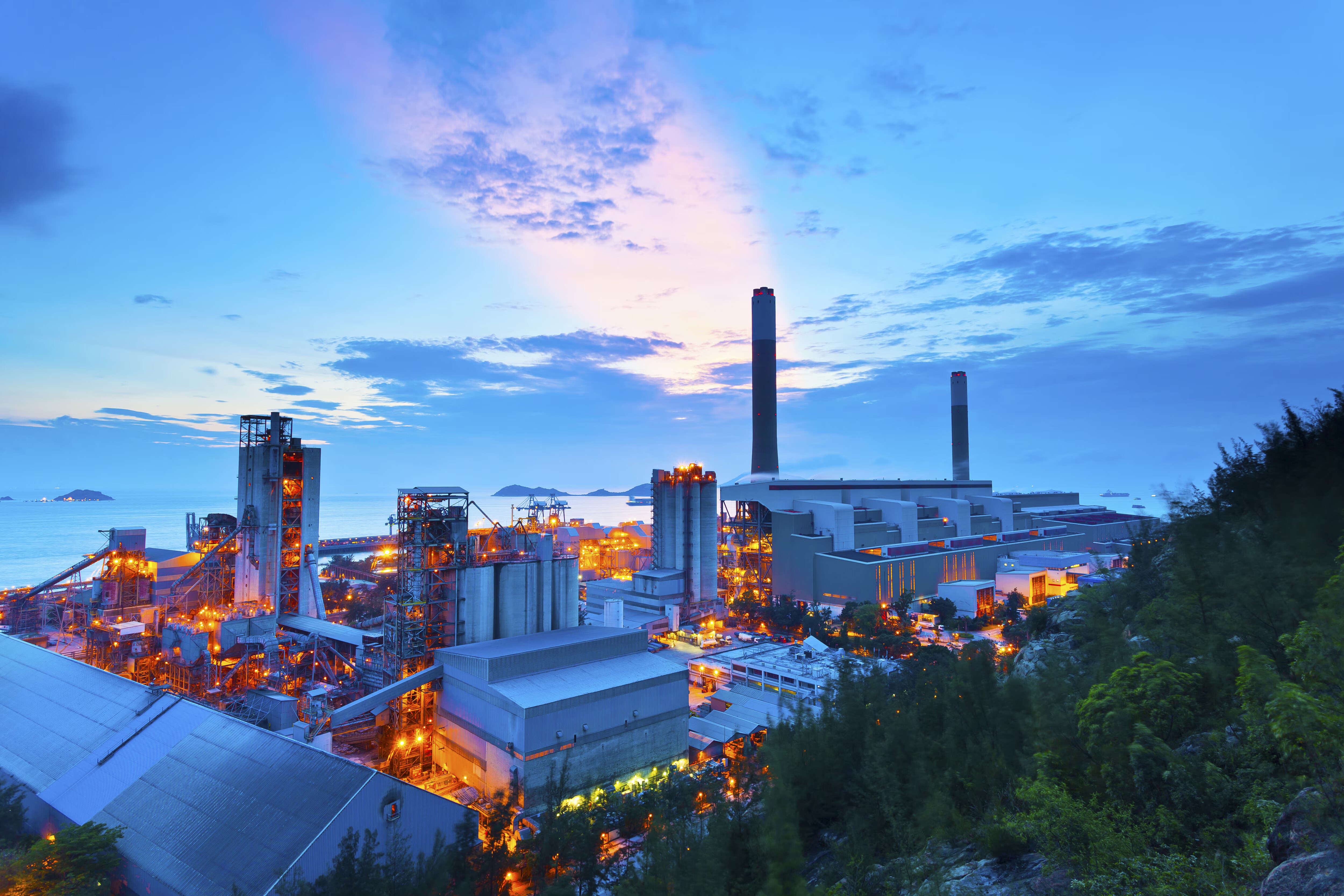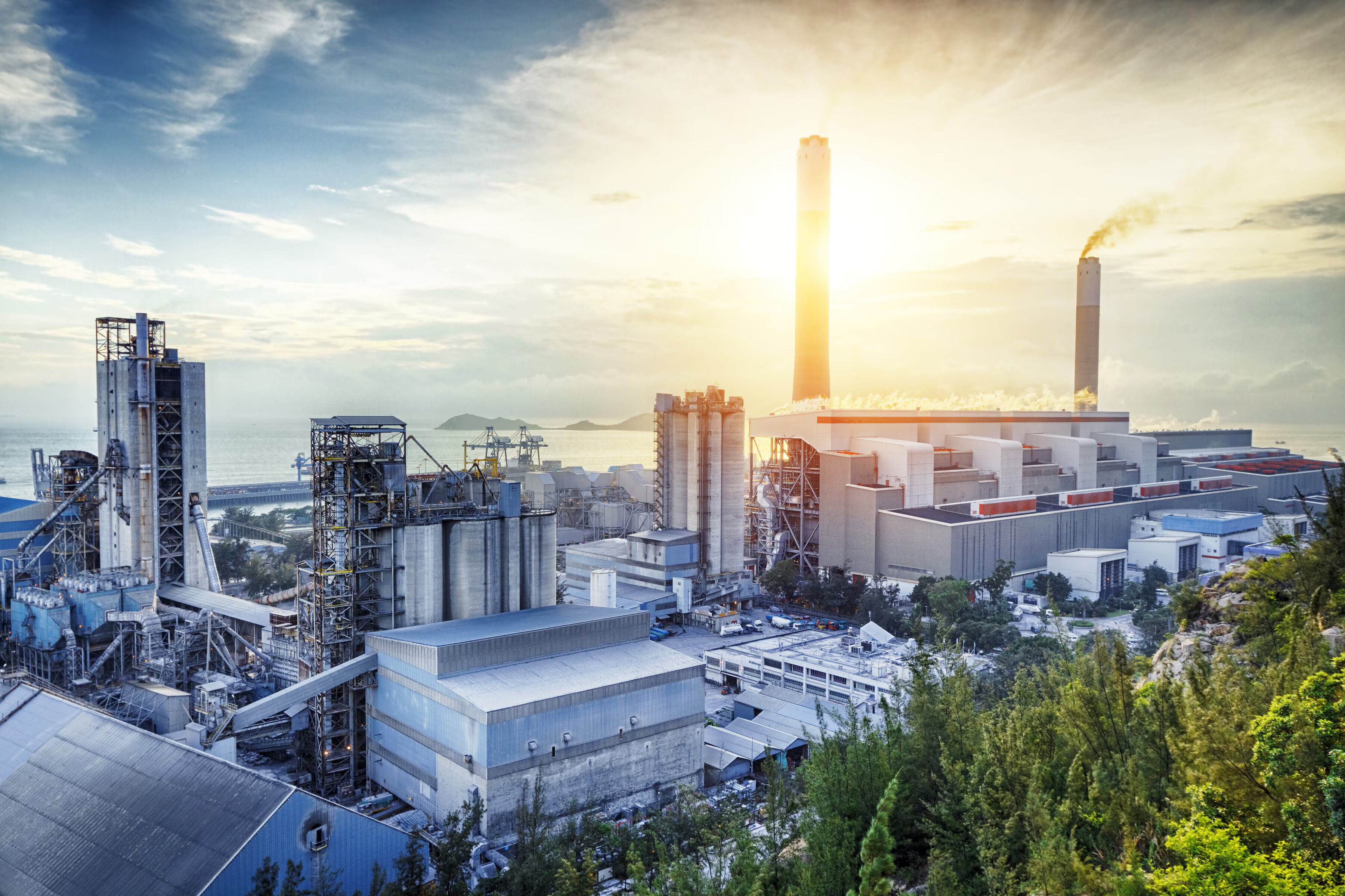“Trillions of dollars added to the economy” - Google’s chief economist on the macro impact of AI
ポッドキャスト・トランスクリプト
This transcript has been generated using speech recognition software and may contain errors. Please check its accuracy against the audio.
Fabien Curto Millet, Chief Economist, Google: What we are seeing is green shoots of something deeply transformative. I mean, it's the most exciting thing technologically I've seen in my lifetime. And it's starting in the micro evidence, and it is sort of moving into the macro evidence. And we'll see how quickly it moves and how deeply.
Robin Pomeroy, host, Radio Davos: Welcome to Radio Davos, the podcast from the World Economic Forum that looks at the biggest challenges and how we might solve them.
This week, we're looking at the global economy because the World Economic Forum is publishing its regular Chief Economists Outlook. And I have with me Fabien Curto Millet. He's the chief economist at Google.
Fabien Curto Millet: The estimates, the people who have been brave enough to put estimates out there, Goldman Sachs says full adoption of the technology in the US would be an uplift of 15% of GDP. The OECD also looked at the US over the next decade and their positive scenario is 10% of GDP. Yes, the estimates vary, but you're looking at trillions of dollars added to the economy. So something incredibly exciting, and that doesn't come a moment too soon if you ask me.
Robin Pomeroy: Hi, Fabien. How are you?
Fabien Curto Millet: Hello, hello. Good to see you, Robin.
Robin Pomeroy: Good to see you, Fabien. And you're calling in from San Francisco, near the headquarters of Google.
Fabien Curto Millet: Indeed, our office is out here near the Ferry Building and it's a beautiful day.
Robin Pomeroy: Remind us what, or tell us what a chief economist does, particularly a chief economist working for a company like Google.
Fabien Curto Millet: Well, I can tell you what I do. Broadly speaking, four sort of missions.
One is macroeconomic understanding, decoding, so understanding the environment that the firm obviously navigates in, operates in, etc.
Secondly, bringing the best of economics, econometrics, causal inference to improve business decision-making. Where should we deploy our sales force, how should we design our products for best effect. So that's kind of business economics, I call it.
Thirdly, antitrust regulation policy, so with success comes responsibility, and we are asked questions all the time from all over the world and we do our best to bring economics to the table when those things are discussed.
And finally, thought leadership, so especially these days with AI transforming the economy under our eyes, we try to understand the scale of those transformations and, you know, how we're impacting the world around us responsibly.
Robin Pomeroy: And I really want to talk to you about how AI is impacting the economy, the global economy. Let's get into that after we've spoken a little bit about the Chief Economists Outlook.
And the Chief Economists Outlook is this report that the World Economic Forum produces every four months, more or less. They survey people like you, chief economists, around the world to get some idea about what the economy looks like in terms of economic growth. Inflation and monetary and fiscal policy.
As we speak, Fabien, it's not actually been published, but we've been given a little briefing of some of the headlines. So here's a quote from the summary that I've received.
The global economic outlook has darkened since the start of the year. Worsening geopolitical tensions and rising economic nationalism threatened in April to escalate into a global trade war, and despite a subsequent pause in economic hostilities, the situation remains fraught with risks. Unprecedented levels of uncertainty threaten to cause significant economic damage through increased policy coordination risks, stalled decision-making and the disruption of global value chains
Fabien, do you agree that there's a lot of uncertainty and that it's kind of, there's this, what economists might call downside risk at the moment?
Fabien Curto Millet: So Robin, I don't comment on the macroeconomy in public, but I will, however, rebound on the word uncertainty because economics does have interesting lessons to teach in times of this sort.
So economists distinguish two concepts in this area and that goes back to seminal contributions by Frank Knight and John Maynard Keynes separately in 1921 where we distinguish decision-making under risk, which is essentially, you know, the future is uncertain. There are many states of the world which are possible with associated probabilities. Think of throwing a dice. You don't know which face you're gonna land on, but you sort of understand the structure of the problem.
And that setup is to be distinguished from decision-making under uncertainty where there is a more fundamental unknowability to things. This is Donald Rumsfeld's unknown unknowns. So it's like you have event uncertainty, you don't what sets of outcomes are possible. You have probability uncertainty. You don't know what probabilities to ascribe to them. And you have impact uncertainty. Should one of those arise, you're not too sure how bad it's gonna be or good.
So you have to somehow negotiate with that. It's like playing with an n-sided dice where you don't how many faces there are and you don't know what's written on the faces. So a little bit of a more challenging setup.
My advice in these times is to try to essentially boil down as much as possible the uncertainty into risk. So do Royal Dutch Shell style event enumeration exercises where you try to figure out, right, what are the top five things that are most likely to happen. The top five that are the most impactful, should they happen. The top five highest expected value if they happen, et cetera, et cetera.
So you should never be in a situation where something happens and you go, oh my God, that was obvious. So ideally you prepone all of that.
And then the second tip I would give is you invest into robust strategies. And so think of chess, the typical opening move is either you move a queen's pawn forward or the king's pawn forward. And depending on which one has happened in front of you, you have different sets of optimal strategies. But imagine that you don't observe what your opponent has done. You need to then think about this completely differently. And there are robust strategies, which are not optimal, but kind of good whatever may have happened.
So think in terms of robust strategies and don't try to sort of optimize because you're not in that playing field.
Robin Pomeroy: The interesting thing about following the global economy, and your job, I guess, is that risk landscape changes all the time. And that's why when I come to do an episode on the Chief Economists Outlook, it's different every single time. And the Global Risk Report, there's an annual report that the World Economic Forum does at the end of the year, it's amazing how different it is, because so many stories, it's kind of the same, incrementally different, but I think the economic outlook is always pretty different.
And one of the chapters that this particular one looks at is the macroeconomic impact of artificial intelligence. And we're two or three years since ChatGPT was unleashed to the public. You're in a place where, and a company where people have been working on this, you know, for many, many years, possibly decades, but for the rest of the world. We're talking two or three years of generative AI and people are trying to work out what to do with it and what impact it can have in their business.
And so that's really what I want to hear from you. I mean, if I quote from the Chief Economists Outlook to see what impacts that wave of generitive AI has had it gives a definitive, "we're not sure". And so, and the way they write it is:
There is significant uncertainty about AI’s impact on overall economic growth.
There is significant uncertainty about AI’s impact on overall economic growth.
And then it mentions:
Among the chief economists, 46% anticipate a relatively modest boost to global GDP of 0-5 percentage points over the next decade. A further 35% expect gains of 5-10 percentage points.
But then it adds, maybe that's not so modest when you're talking about growth in some countries that is struggling to get much above zero.
But the message is very carefully couched there, saying, we're not too sure what the impact is.
Fabien, you're the chief economist at Google. Tell us, are we feeling the impact of this AI revolution yet in macroeconomic figures?
Fabien Curto Millet: So Robin, while you quoted a spread from my colleagues in this group in terms of expectations and economists are prudent looking at the future, maybe keeping in mind the Chinese proverb that he who lives by the crystal ball ends up eating broken glass, but nevertheless even the lines or the figures that you outline are incredibly enticing. And what we are seeing is green shoots of something deeply transformative. I mean, it's the most exciting thing technologically I've seen in my lifetime. And it's starting in the micro evidence, and it is sort of moving into the macro evidence. And we'll see how quickly it moves and how deeply, which is kind of what the figures you quoted were about.
But in terms of a micro evidence, there are studies after studies, there's now a small pile of it, in very many sort of different settings. So for example, call centeres, there's a classic Brynjolfsson and colleagues study that finds that deployment of AI increases by 14%, the issues resolved per hour, so huge productivity gains, developer productivity.
We have a paper, some Google colleagues just put out a few months ago, looking at enterprise-grade tasks accomplished by our software engineers. It's a randomized controlled trial and finding time savings of 21% in that sort of real-world setting. Professional writing tasks. I mean, think of issuing press releases, things of that sort. There's another famous study, Noy and Zhang, that finds 40% faster completion at higher levels of quality by using AI.
And so on and on and you now have this kind of picture that's building in the micro evidence that shows there is really something here.
In terms of translating that across the economy, of course, the economy is a huge beast. So There are questions as to how fast that happens, et cetera. But the estimates, the people who have been brave enough to put estimates out there, Goldman Sachs says full adoption of the technology in the US would be an uplift of 15% of GDP. The OECD also looked at the US over the next decade and their positive scenario is 10% of GDP. You've got McKinsey, Accenture, a lot of people have weighed in.
And yes, the estimates vary, but you're looking at trillions of dollars added to the economy. So something incredibly exciting, and that doesn't come a moment too soon if you ask me given the you know challenges we are all facing the demographic trends you know the fiscal deficits. I mean this is you know right you know technology if we play our cards right because none of this is automatic it's not manna from heaven it's going to take concerted efforts in order to the price.
Robin Pomeroy: You say this is the most, I don't know what the word you use, is transformative or revolutionary thing in your lifetime. We lived through, some of us, the dot-com bubble when the internet was the future and share prices went through the roof, this, that, and the other. And then, well, Google, obviously, came out of that and has thrived. But there was a kind of a period of when it wasn't delivering the promise. Do you think that will happen with AI? Will we have this? Because I agree with you, it's the most transformative thing, just my personal opinion and from the people I've spoken to in the job I do. But there is always the risk of a hype cycle. And certainly the internet did transform everything we do, but there was a year or two there when it looked like it wasn't going to do that. Are we expecting that with AI, do you think?
Fabien Curto Millet: Those are the swings and roundabouts of financial markets, Robin. So as you say, fast forward into the present and we see how much the digital revolution today has changed everything around us. I mean, the company I sit in, just all of our revenues come from markets that did not exist 30 years ago. You think of search, you think of cloud, you think of video streaming. So absolutely extraordinary transformation across the whole economy. And yes, there was the sort of, you know, dot-com sort of bust financially speaking. There was exuberance at that time, you know, cables were laid into the ground ahead of demand. So there was a little bit of a mismatch in timing between some of the promise and some of the delivery. But we've seen that the delivery has come. So I treat that as a little of a hiccup.
And at this moment, it's, the race is on. Everybody's plugging sort of GPUs, or in our case, TPUs, Tensor Processing Units, into our data centers. And you cannot plug them fast enough in face of the demand that we're seeing. It is a very exciting time.
So differences vis-a-vis the situation in the early 2000s, but we economists tend to focus on the medium to long run and the promise here is extremely clear.
Robin Pomeroy: What about the pitfalls, I'm going to run through a couple of them with you, that could potentially dent some of that economic growth? The energy demands for AI is enormous and growing. That has to be addressed and the knock-on impact to the environment of that. Do you think that is a risk?
Fabien Curto Millet: It's a formidable topic, Robin.
So, energy demands. So yes, if you look at the, you know, let's take the US, the energy forecasts of the Federal Energy Regulatory Commission, FERC. So last year they issued their five-year forecast. It was triple what they had issued the year before. And the TLDR is we somehow need to scare up 128 gigawatts you know worth of power by 2030 in the US. This is, by the way, not just data centers, although data centers are the most prominent thing in the press when you look at the added energy demand. I think the Bipartisan Policy Center found that data centres accounted for a quarter of the load growth, but you've got more general electrification, on-shoring, other things happening in the economy that are also pushing up energy demand, but yes, it's definitely contributing to the picture.
Efficiency improvements are going to bend the curve to some extent, so, you know, thinking of our data centers, we now get four times as much compute per unit of electricity than we did five years ago, and our latest generation of tensor processing units is 30 times more efficient than the one we issued in 2018, which was our first generation of - ridiculous improvements.
Nevertheless, completely correct, I mean, this is putting pressure in terms of energy I see it as an economist, as an embarrassment of riches problem, I mean, this is a high return on investment type of activity. You look at the BEA, the Bureau of Economic Analysis, sizing of the digital economy, they put it at 10% of GDP. This is highly incomplete because of course the digital economic affects the entire economy, but let's just go with that figure. And then you look at data centeres at 3% of electricity consumption. So even in this highly impressionistic back of the envelope, you know approach, you see that there's a sort of good return there.
But there is a problem to be cracked for sure. And it takes all the forms. We need more generation. So Google has leapt forward and done the first private sector deals to secure advanced geothermal, small modular reactors when it comes to nuclear. So bringing more sources of energy into the grid. The public sector needs to solve permitting. There's a lot of red tape that can be cut there.
Grid, the grid can be greatly enhanced and actually again here technology can bring part of the solution. Grid enhancing technologies can free up much more capacity even within the existing grids. Some people put it at 100 gigawatts. Tapestry which is a business we have incubated in Alphabet, helps grid operators do planning much more smoothly and deep into the future allowing them to connect loads faster.
And then you've got the labor force component. You know, more electricians in the US. McKinsey has estimated that at 130,000, I think, by 2030. And so, you know Google has invested in, you know, the electrical training ALLIANCE helping more electricians come to the fore. So, you need solutions across the board. The private sector can help, but there's also a very big public sector component.
And you mentioned, you know, global warming, climate change, of course, you know power consumption, you to sort of look at it also under that angle. My view is that AI is also a tool that can help, you know, here, so, you know, just to give a very sort of nice example, as there was a plane just, you know, flying by at the moment, contrails, which are the condensation trails that, you, know, airplanes leave behind them. That's about a third of the emissions that aviation contributes. Well, there was a Google project that looked at how to minimize them, because you can actually minimize them by adjusting altitude or, you flight path and if you apply that AI-based set of insights you can minimize contrails by 50%. So there's a BCG report that I think it was a year or two ago said that AI could help us manage five to ten percent of emissions if we sort of play our cards right.
So yes it does you know contribute to some of the tension but it also brings with it some of the promise in terms of solving things and that's what I want to double click on.
Robin Pomeroy: Here's another risk, then. When AI is doing all our jobs for us better than we could, there's a risk, isn't there, that there's going to be a lot of unemployment. That will factor in. So GDP can go up and up. But if masses of people are no longer in employment and can afford to contribute to the economy, that's going put a brake on GDP, isn't it? Is that too far in the future yet, or are you already kind of modelling what that might look like and what we might do about it?
Fabien Curto Millet: So Robin, you put your finger on probably the number one concern people bring up vis-a-vis these transformations.
So as an economist taking a step back on all of this, I am not similarly concerned. I mean, the economy, looking at it in the broad, is an extremely resilient thing. I mean think about the US again. We had over 60% of people employed in agriculture in, say, 1850. It went down to less than 5% of the population by 1970. And similarly, manufacturing, you had 27% of people employed in manufacturing in, you know, circa 1970. It's now 8%.
So massive shifts, incorporation of baby boomers into the labor force, incorporation of women into the labor force, shocks that, you know, the economy has absorbed, on the whole extremely elegantly, you now, at the aggregate level.
And what technology does, it's important to remember, it's also quite different from how trade operates, but what technology does is that it replaces tasks, not occupations. Any job is a bundle of tasks. And it's actually quite hard to go out and automate them all. Think of a groundskeeper, you need to operate powered equipment, recognize trees, prune, apply the right fertilizer, all of those things, rake. You could automate in principle all of those things, but it's actually uneconomical to do so. So we're more in a task-based game here.
It does remind me, Jim Bessen, an economist, I think it was 2016, he looked at occupations in the 1950 US census and found that only one of them had disappeared, which was elevator operator, by the way, if you're doing trivia.
Having said all of this, so yes, while replacing an occupation is fairly dramatic, Of course, occupations can suffer in, you know like with technological deployments, just ask any RadioShack employee.
Again applying an aggregate lens to this, I'm thinking of work by sort of my excellent colleague James Manyka when he was at the McKinsey Global Institute where they looked at a set of technological releases, call it, and found for example that the computer revolution did sort of remove three and a half million jobs in things like typewriter manufacturing or bookkeeping, but generated 19 million jobs or more in terms of computer manufacturing, analysis, you name it, so huge net positive there.
And that's what happens with technology, it opens up new tasks, it open up new markets, and on the aggregate I am therefore not worried, and by the way we are not so much running out of work, but rather running out of workers in many economies even more so demographic trends we're looking at.
But here, I want to make sure that I don't do the economist scene of just looking at things in the aggregate, because of course, some people are going to experience some disruptions out of this.
There's a great paper I have to recommend, Feigenbaum and Gross, who looked at another technological shift, which was the introduction by AT&T in the 1920s of automated switching and if you think back at your black and white classic movies where you have people actually connecting calls, actually predominantly women. I think AT&T was the number one employer of women in this country in that time. Well, automated switching just did away with that whole occupation. And the findings are phenomenal in that they find no detriment to the employment of women after this change, even though discrimination was rife. It was an extremely heavily concentrated labour market shock on women. So no detriment in the aggregate, but the women that had been employed in those occupations, some of them dropped out of the labor force or some of them experienced wage drops. So there is an adaptation for those workers and that's where we need to come in with the right policies to make sure that the cake expands really for everybody because there is the potential for that.
But it's going to take smart policy making. Not just private sector interventions and we try to do our bit over here, but I think the government is going to have to be smart so that the promise of AI is really a promise for everybody.
Robin Pomeroy: I'm just looking at what's in the chief economist outlook about jobs. Among the chief economists, 47% expect net job losses over the next decade, compared to 19% who expect net jobs gains. It's kind of guesswork at the moment. As I see it, we're so much at the beginning of this revolution. We'll look back in 10 years' time and be amazed at the difference between what we forecast and what reality would have been, right?
Fabien Curto Millet: 100%. Yes, opinions differ right now. It's fair to say, Robin, I mean, for the reasons I just outlined, I mean the net increase bucket, again, feeling very optimistic about this, but we need to play our cards right.
Robin Pomeroy: Let's look at the areas, perhaps, that AI is going to affect. Listeners to Radio Davos may have heard some episodes we've been doing about sectors, industry sectors, and how they are deploying AI. The financial services industry, for example, investing vast amounts. The consumer goods industry, taking a slower approach, but still it's clear that it's going to have a transformative impact in the next five years or so.
Where do you see the big gains, the big economic gains when it comes to maybe industry sectors or even geographic areas?
Fabien Curto Millet: Another prediction task Robin.
Robin Pomeroy: It's the outlook, it's the economic outlook.
Fabien Curto Millet: It is the economic output after all, you are correct.
Well, so you can think of AI as an advance in the statistics of prediction. John Gantz, etc. have that definition, I think it's quite apt. So no wonder that for any quantitative task in the economy where you think of, you know, logistics, inventory management or finance, as you've mentioned there is a very ready or fertile terrain for AI. And indeed, when you look at the evidence, Bureau of International Settlements, 70% of financial firms have deployed AI in their activities. Bank of England had similar figures, I think three quarters in the UK.
So in areas like cash flow predictions, credit scoring, fraud detection, there is AI all over the map already and getting more and more sophisticated.
And by the way, AI is not just an advanced country game, although we've mostly been talking about advanced countries. When you think about the developing world and finance, since we're on the topic, there's in dozens of countries, lenders are now using AI in order to be able to extend loans in places where there is no sort of credit scoring history by using other signals such as cell network data. That was actually an idea suggested by Daniel Björkegren, an economist in Columbia, you know, suddenly enabling, you know transformative loan-making in places that, you know, really, really need it. So quantitative activities all over the economy, you name, you've got it.
But AI is actually a very flexible technology. And we've all experienced that with, you know, all of the chatbots all over the map, right? AI has been able to engage with human language and human language is a big part of the sort of production function, if you will, of, you know, many goods and services. And so you can very flexibly sort of lace AI into so many activities just as a reason of that.
And the other thing to mention, when I look at the world, it's full of latent markets. So those are situations where you have, demand for a good or service, but no supply or vice versa. And essentially what technology does is it creates the bridge to enable those markets to emerge. So, and I think of Uber, for example, you know, like back in the hard days of the 90s, you were in the middle of nowhere, you had no means of writing a contract so that somebody could come pick you up in the middle of no where and take you where you wanted to go. But because of this wonderful innovation of computer-mediated transactions, you are able to write that instantaneous contract because of the combinatorial innovation of bringing together mobile technology, mobile payments, GPS, a review system, you name it. You combine those things and you suddenly can unlock a match of demand and supply.
And that's what we're going to see, I think, throughout the economy. And it's going to be full of surprises for us.
Robin Pomeroy: You mentioned developing economies when it came to loans. I wonder, how optimistic or pessimistic should we be that this revolution, if we're going to call it that, in technology might not leave behind sectors of the population or parts of the world? Are you confident that - because it costs so much to do and it needs a lot of infrastructure - I guess mobile technology kind of leapfrogged in parts of Africa, for example, that the rollout of mobile phones was faster than in many more developed parts of the world because they didn't need all that infrastructure that old telephones had. Do you think we can achieve something similar with AI or is there this risk that Silicon Valley goes off ahead and leaves the rest of us behind?
Fabien Curto Millet: I mean, you know, there is always a risk if you sit on your hands, but the future is not a forecasting exercise, it's a design problem as we see it.
Indeed, if you look at developing countries, there is actually quite similar to a lot of technological revolutions, much more enthusiasm than you see in advanced countries in terms of the surveys, the sort of adoption is not like just skyrockets, et cetera, and there is less concern about ooh, what about the downsides, et cetera. So people see immediately things that are very practical that they can deploy those technologies towards.
But of course, if you're going to have the design of these technologies, just based on advanced country data, et cetra, you can introduce biases if you do it wrong, but then leave some of the words aside.
And this allows me to plug by the way, the UN released yesterday their Human Development Report for 2025, phenomenal, very comprehensive piece of work, that precisely discusses some of these risks, but also the massive upsides that stand to be gained in countries that are lower on the human development index.
So I think there is a lot of promise here, but again, you have to be deliberate in how you approach these problems. And we do take a worldview out of Google. We see us as being very responsible in terms of our, as a developer, a deployer of these technologies. You know, we make sure in our subsea cable infrastructure, even we connect so many regions of the world. Recently, you had a sort of failure of much of the systems in Africa, our Equiano cable that connected Portugal with West Africa just took over and allowed those countries to continue while some of our systems were messed up.
So we do take a global view. We see ourselves as a player that's at home everywhere, but again, it's something that you need to do deliberately.
Robin Pomeroy: Just to bring it back to kind of the macro outlook, I'm guessing it's impossible to say, will it ever be possible to say, global GDP increased or decreased, presumably increased, by X amount because of AI and we could, you know, if some big thing comes up and you say, ah, you could chart it on a graph, you'll see a little bump, but say, you see, that was when this thing happened in technology. Or is it's so integrated with the rest of the economy you'll never really be able to do that.
Fabien Curto Millet: That's our job, Robin, to, you know, like, untangle these integrated things and, you know, it takes time to see them. I remember, you, know, Robert Sullivan, Nobel laureate, quipped in 1987, and this is quoted all of the time, that you see the computer age everywhere, but in the productivity statistics. You know, actually, it was already there, but it only became very obvious in the mid-90s, you now call it. But no, we have been able to certainly diagnose, track it, and now see the wonderful decade of productivity we had from, you call it, 95 to 2005 and its association with a computer age. So we'll be able to do exactly the same here with AI. So, we have the tools to do it.
Robin Pomeroy: When do you think that will be in the headlines? Here's a new report from the IMF, and AI has added X percent growth. I've not seen a news report like that. Do you think will happen?
Fabien Curto Millet: So now everybody is scrutinizing these things closely, but at the moment what you have is green shoots. So where does adoption stand? In the U.S. The best figures from the Census Bureau say 5-6% of firms are now using AI in the production of goods and services.
Interestingly, one phenomenon that we're seeing is that there is more employee enthusiasm at the beginning of an employer enthusiasm. So employees are front running. There was a McKinsey report from January, Superagency in the Workplace that surveyed both employers and employees. And employers will miss out three times of the usage that is happening in their firms from employees. But that's where we stand. It's kind of the early days. It's normal that it takes time for the productivity benefits to materialize.
Let me give you an analogy. Electrification. So you had factories back in the industrial age powered by a steam engine sitting outside, driving a huge shaft in the ceiling, and then, you know, driving a bunch of... You know, machines connected by sort of, you know ropes and et cetera, to the central shaft. Electrification comes out. Wonderful. We replace the steam engine with an electric motor. You have more reliable power, more even power, cheaper power, you now, et cetera. But it's a point solution at that time. When did the productivity unlock happen? It's when people sat back and thought, well, hang on a minute, now with electricity I can bring power to any part of the factory floor. I can have multiple desks working in parallel. I can maintain one machine while the other is still operating. A breakdown does not shut down my entire factory. And so you reorganize production entirely around the new technology.
And so AI is an invitation to do in the cognitive realm what we achieved with other general purpose technologies like electrification in the physical realm, but reorganizing the economy around a new technology takes time.
So when is it going to happen? So Look, as a sort of sleight of hand, the steam engine took 60 years from invention to materialization in the productivity statistics, electrification, 30, the computer age, 15 years. We could go a little faster, perhaps, but it will scale up, right? Why could we go faster? Information flows faster these days. I mean, just look, DeepSeek happened in China. We were all over it immediately, all over the world. Just in web search, targeted advertising, information flow is much higher. Distributional models for bits much faster, the app economy, connectivity. Like if you launch a new service, you can be all over the place instantaneously compared to the bad old days of the 90s that I recall so often. E-commerce, the same distribution efficiency for goods. And education, YouTube, et cetera. You can pick up things so much faster these days.
So I think we are in a faster moving economy, which ought to grease the rails for the impact of AI. But then everybody needs to make an effort, you need complementary investments, you need energy as you mentioned and you know it's private-public sector partnership concerted efforts.
Robin Pomeroy: How do you use AI, Fabien, in your life? You know, I'm expect, you're probably a pen and paper kind of guy, and never use AI. Is that what you're gonna tell me?
Fabien Curto Millet: You know I'm old school in a number of ways, but I will encourage you to play with AI. So Gemini 2.5, our latest release, phenomenal, now transformative for me as an economist. You can have deep conversations where Gemini solves oligopoly models with complex entry conditions, wonderfully well. You can talk bargaining theory, information economics. You almost have like a sparring partner of sorts. It's helped me, I mentioned the UN Human Development Report. That report is 328 pages, beautifully written, lots of evidence, it's long. I was able to load it into Notebook LM. I don't know if you've played with, you know, that's...
Robin Pomeroy: I have, I've played with the podcast generator from Notebook LM, which obviously I don't like, it's going to put me out of my business. The one thing I recently discovered on that is you can join the conversation live. Have you done that yet, Fabien? There's two people talking, they're robots, but you can actually interrupt them and get into the conversation and they reply back. That was quite impressive.
Fabien Curto Millet: It is game changing, so that helped me catch up with what the UNHDP report said yesterday during my commute.
Things of that sort are phenomenal, and I wish I had had AI when I was writing my PhD back in the glory days. I mean, in terms of cleaning up data, processing, ingesting it, doing the analysis, it is a huge productivity booster. It is transforming my little parochial discipline of economics, let alone the economy at large.
Robin Pomeroy: You might have already answered this one, but I was going to ask you what innovations have impressed you most? Have you already listed them in the above or is there one thing that you just woke up one morning and it blew you away?
Fabien Curto Millet: Within AI specifically or like more generally?
Robin Pomeroy: Take it as you wish. It's gonna be an interesting answer. If it's not about AI, I'll be surprised.
Fabien Curto Millet: I mean, you know, so in AI, I have that sort of feeling of waking up. Remember, I am sitting in the chocolate factory. So I see a little bit further what we've got, you know coming down the lane and it is absolutely formidable. So, you now, the sort of NotebookLM type capabilities, you know that we've mentioned that really made me sort of sit up because it changed how I ingest information. And as I was mentioning, having these kind of econ conversations now with AI that's been game changing.
Robin Pomeroy: The fact that it's literally talking to you and you are literally talking back to it, is that the thing?
Fabien Curto Millet: Yes, indeed.
And we live in a time of wonders. Quantum computing is around the corner. Maybe another five years or so we'll have working quantum computers. Google has broken various of the thresholds in the lead up to that. That is a formidable, formidable thing. It could really transform our ability to do simulations for fusion energy, for example, or enzyme sort of modeling. Again, things that are going to unlock, you know, so many benefits in terms of, you know, drug discovery, you know, healthcare, et cetera.
So I am literally waking up on a daily basis and thinking, wow, this is, this is remarkable.
I'll give you another one. This is not my experience, but it really sort of made me sit back. So at Google, we have an AI co-scientist that we released. So again, a sparring partner for, you know, scientists who want to generate hypotheses for stuff they're studying. And recently there was a team at Imperial College London, and the lead researcher there, they tried it out. And it spat out a hypothesis on why superbugs are resistant to antibiotics. That was exactly where they had landed after 10 years of work. And the lead researcher was, did you have access to my files? I mean, got in contact with Google as to trying to find out how this had happened. But no, of course, we had not had access to his files. It's just that this technology is just now ripe for having that kind of level of unlock.
Robin Pomeroy: You mentioned healthcare. Education is often another sector that is said to have massive potential when it comes to AI. What do you say about that?
Fabien Curto Millet: 100%. So AI enables infinite personalization. So that's one of the big unlocks we've got here where you can flexibly literally have things taught at your level. That's actually a concept by the MIT Poverty Action Lab. Teach at the right level where it's proven in randomized control trial experiment after RCT that students do progress much better when you actually level with what is exactly. Your problem, where are you getting stuck? And that's in the developing world and advanced economies alike. So AI allows you to have that sort of very direct interaction with people.
There was another randomized controlled trial experiment in Stanford where a sort of tutoring aid was designed to help teachers, again, deliver the right messages to the students, not just here is what you got it wrong, here's the correct answer and you are unskillfully not really able to explain, but where the tutoring aid suggested, well, try this with a student or try that. And demonstrating again in an RCT framework that you had big gains in terms of comprehension, understanding, absorption of the material.
So, phenomenal aids on the teacher side. And if you broaden, and we were discussing the developing word, this is where I see a lot of the sort of upsides. The minister of digital transformation from Togo was discussing this with my boss, Ruth Porat, president of Alphabet, where she said, imagine my country. I have a median age of 19 years old. I have very young country. I don't have enough teachers to address the demand for education. I need these technologies in order to be able to make progress. And if you step away from our advanced country mindset and step into the sorts of challenges that that entails and the sort of productivity uplift in education but you can get out of AI, it colours things entirely differently.
Robin Pomeroy: It's been a fantastic discussion. I can feel the excitement from you, Fabien. Thanks so much for joining us. You are the Chief Economist at Google. Fabien Curto Millet, thanks very much for join us on Radio Davos.
Fabien Curto Millet: Thank you, Robin. It was fun.
Robin Pomeroy: Thanks to Fabien Curto Millet, Chief Economists at Google.
Please follow Radio Davos wherever you get your podcasts or visit wef.ch/podcasts where you also find our sister programmes, Meet the Leader and Agenda Dialogues.
This episode of Radio Davos was written and presented by me, Robin Pomeroy. We'll be back next week, please join us then. But for now, thanks to you for listening and watching and goodbye.
The World Economic Forum's latest Chief Economists Outlook highlights the risks posed by global trade tensions; and examines the potential impact AI will have on economic growth.
Google's chief economist, Fabien Curto Millet, gives his take on the Outlook and the impact of GenAI, which he calls "the most exciting thing technologically I've seen in my lifetime".
Watch this discussion of the key findings of the report:
Related podcasts:
その他のエピソード:
「フォーラム・ストーリー」ニュースレター ウィークリー
世界の課題を読み解くインサイトと分析を、毎週配信。


